2020 Lunch Lectures
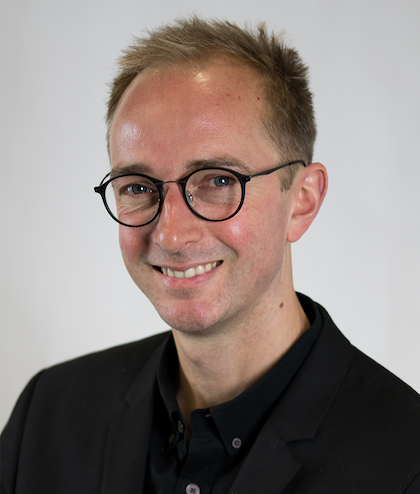
Sonic Interaction Design for the Post-Screen World
Speaker: Nick Bryan-Kinns
Date: 2020-11-19 12:30:00
Location: Virtual
We live in a post-screen world of interactive systems where our kitchen appliances talk to us and our shoes vibrate when it is time to go for a walk. A challenge for design in the post-screen world is how to develop design methods, practices, and education for non-visual interaction with interactive systems. This talk presents over ten years of research into approaches to Sonic Interaction Design which combine Audio, Interaction Design, and Physical Computing to allow designers to explore the potential role of sound in interaction, and to sensitize designers to the use of sound for interaction. The approach foregrounds design explorations of the possible design connections between human action and sonic responses by interactive systems. This talk will present and discuss design and evaluation techniques that can be reliably used in these situations and show how Sonic Interaction Design can be informed by careful and rigorous consideration of human experience.
Bio:
Nick Bryan-Kinns is Professor of Interaction Design and Director of the EPSRC+AHRC Media and Arts Technology Centre for Doctoral Training at Queen Mary University of London. He is Distinguished Professor at Wuhan University of Technology, and Guest Professor at Huazhong University of Science and Technology, China. He is Director of EECS International Joint Ventures, Fellow of the Royal Society of Arts, Fellow of the British Computer Society, Senior Member of the Association for Computing Machinery, and leads the Sonic Interaction Design Lab in the Centre for Digital Music. He has published international journal papers on cross-cultural design, participatory design, mutual engagement, interactive art, and tangible interfaces. His research has been exhibited internationally and reported widely from the New Scientist to the BBC. Bryan-Kinns was Deputy Dean at QMUL, held a Royal Academy of Engineering Industrial Secondment for commercialising academic research, and has provided expert consultation for the European Commission and National Science Foundation on Creativity and IT. He chaired the Steering Committee for the ACM Creativity and Cognition Conference series, and is a recipient of ACM and BCS Recognition of Service Awards. In 1998, he was awarded a PhD in Human Computer Interaction from the University of London.
(No video available)
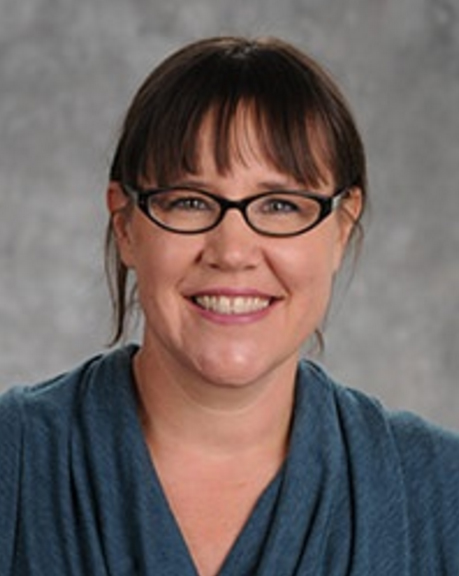
DataWorks: Understanding Data Contexts and Developing Data Literacy Project Description
Speaker: Betsy DiSalvo
Date: 2020-11-12 12:30:00
Location: Virtual
Data has become embedded in all aspects of our lives, gathered and communicated to us in ways that could not have been imagined 10 years ago. While there was a time when data was considered impersonal, inert, and intangible, today we recognize that data is a reflection of the context in which it is collected, analyzed, and communicated. The DataWorks program is an entry-level job program that serves both as educational outreach for the College of Computing and a research platform. Outreach goals are to employee and train young people from disenfranchised neighborhoods as Data Wranglers, cleaning, formatting and preparing data for analysis, preparing them for more advanced careers in data. The research is focused on the context of community data and on the data literacy needed in the collection, wrangling, and communication of data within communities. Our particular focus is on the geographical and social context of data, and on the specific use of data for civic purposes. Thus, doing this data work is a potential path to increasing civic engagement and computational empowerment.
Bio:
Dr. Betsy DiSalvo is an Associate Professor in the School of Interactive Computing at Georgia Institute of Technology. DiSalvo work is focused on computer science (CS) education and informal learning. She is PI for several NSF funded CS education projects, including exploring maker-oriented learning approaches to increase transfer and reflection in CS courses and the DataWorks project, an authentic working environment for minoritized youth that provides CS education through entry-level jobs. DiSalvo collaborates with game developers and others to develop educational games such as the Beats Empire game, which assesses CS learning outcomes and the Hemonauts game, which helps chronically ill children learn science concepts related to their bodies. In the past decade DiSalvo has led research effort to understand minoritized parents’ use of information technology in their children’s education, working with African American and Latin American parents in Atlanta. DiSalvo's work has included the development of the Glitch Game Testers program, a CS education effort with African American males, and projects for the Carnegie Science Museum, the Children's Museum of Atlanta, Eyedrum Art Center and the Walker Art Center.
Video is not available for this event.
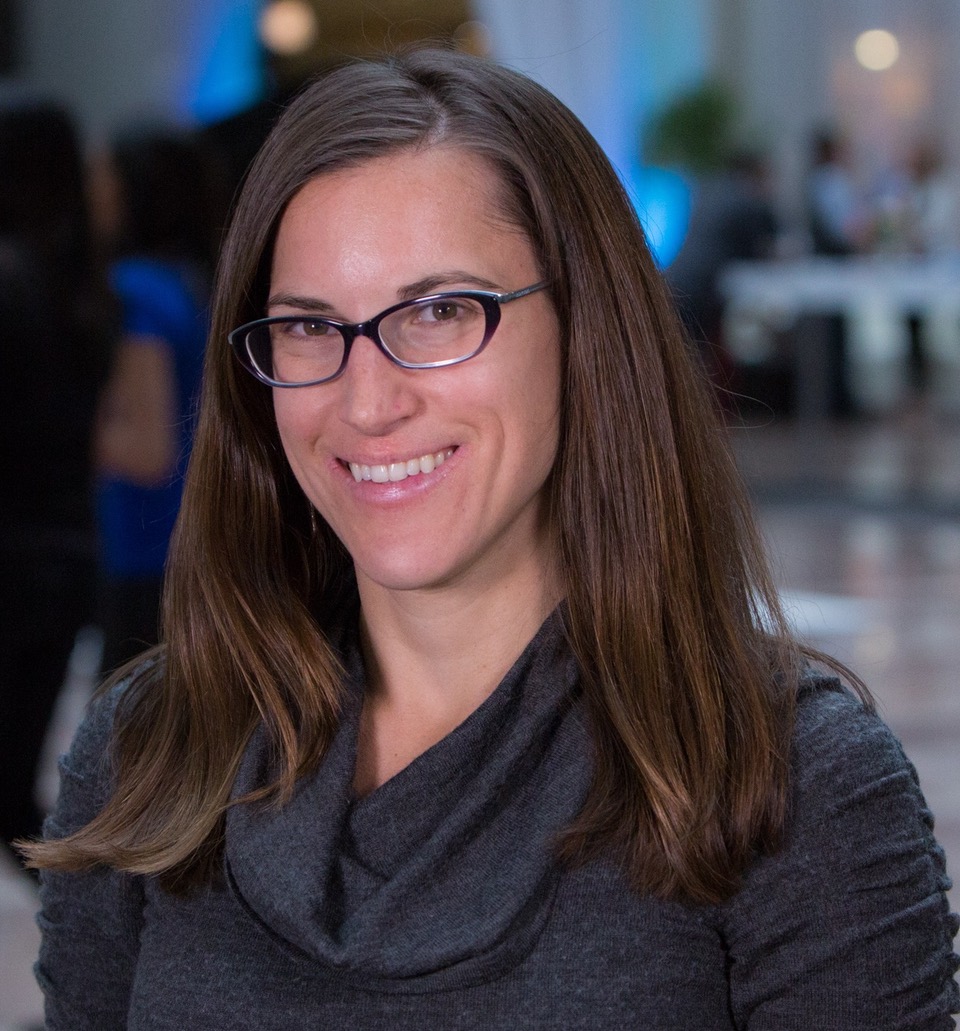
Public Health on FHIR
Speaker: Paula Braun
Date: 2020-11-05 12:30:00
Location: Virtual
All levels of public health, from the local level to the national level, struggle to obtain timely, accurate, and actionable information from electronic health records. The current data environment too often relies on cumbersome, non-electronic methods for data exchange that can pull frontline public health officials and clinicians away from essential work and result in data omission and errors. Although methods for electronic data collection are available, several still cannot be implemented at scale without significant effort. The universal health data application programming interfaces (APIs) called for in the 21st Century Cures Act present an opportunity for public health to access valuable information on cohorts and populations. Real world testing is needed to demonstrate how this emerging lingua franca can help public health—at all levels from local to national—to obtain timely, accurate, and actionable data from electronic health records. More unified and modern approach could help to provide state and local public health departments access to well-processed and up-to-date information, which could be de-identified and rolled up to national-level data requestors more seamlessly to drive federal policy making. These scalable, non-proprietary tools and approaches to interoperability could help provide useful and actionable data to accommodate various levels of information sharing while addressing long-standing, cross-cutting public health data challenges in a sustainable manner.
Bio:
Paula Braun is an Entrepreneur-in-Residence at the US Centers for Disease Control and Prevention. She tracks evolving tech trends and helps to communicate why they matter to public health. In 2019, she was named one of the top 50 Influencers in the Federal government on artificial intelligence. She engages stakeholder groups from across government, academia, and industry to help improve public and population health. She is an internationally recognized expert on interoperability and innovation, and she collaborates with colleagues from across CDC to use design thinking and advances in technology to help address real world health challenges.
Video is not available for this event.

Designing for Mutual Aid: Lessons Being Learned During COVID-19
Speaker: Carl DiSalvo
Date: 2020-10-29 12:30:00
Location: Virtual
One effect of COVID-19 is that mutual aid has come to the fore as a means of responding to a crisis. By mutual aid, we broadly mean practices of cooperative care. While mutual aid is often interwoven with formal systems of care provided by the government and the market, mutual aid is distinct because it is voluntary, reciprocal, and informal. Furthermore, mutual aid is often opportunistic, exemplifying a bricolage approach to services. These characteristics of mutual aid are quite different from our familiar contexts of design.
In this talk I will first provide a broad overview of mutual aid, setting it in the context of post-capitalism and diverse communities economies. I will then discussion an ongoing mutual aid project in Atlanta, which was developed in response to the COVID-19 crisis, in order to provide groceries to residents in need. I will the reflect on emerging lessons learned from this project, which effect how we approach design, and offer new themes for consideration for both research and practice.
Bio:
Carl DiSalvo is an Associate Professor at the Georgia Institute of Technology, with appointments in the School of Interactive Computing and the School of Literature, Media, and Communication, and he directs the Experimental Civics Studio. His work combines design, the social sciences, and the humanities to explore the social and political qualities of computing. He is committed to engaged scholarship and partners with communities, civil society, government, and industry throughout his work. In addition, DiSalvo is a co-editor of the MIT Press journal Design Issues, and through the journal, he works to broaden contemporary discussions of design theory and criticism.
Video is not available for this event.
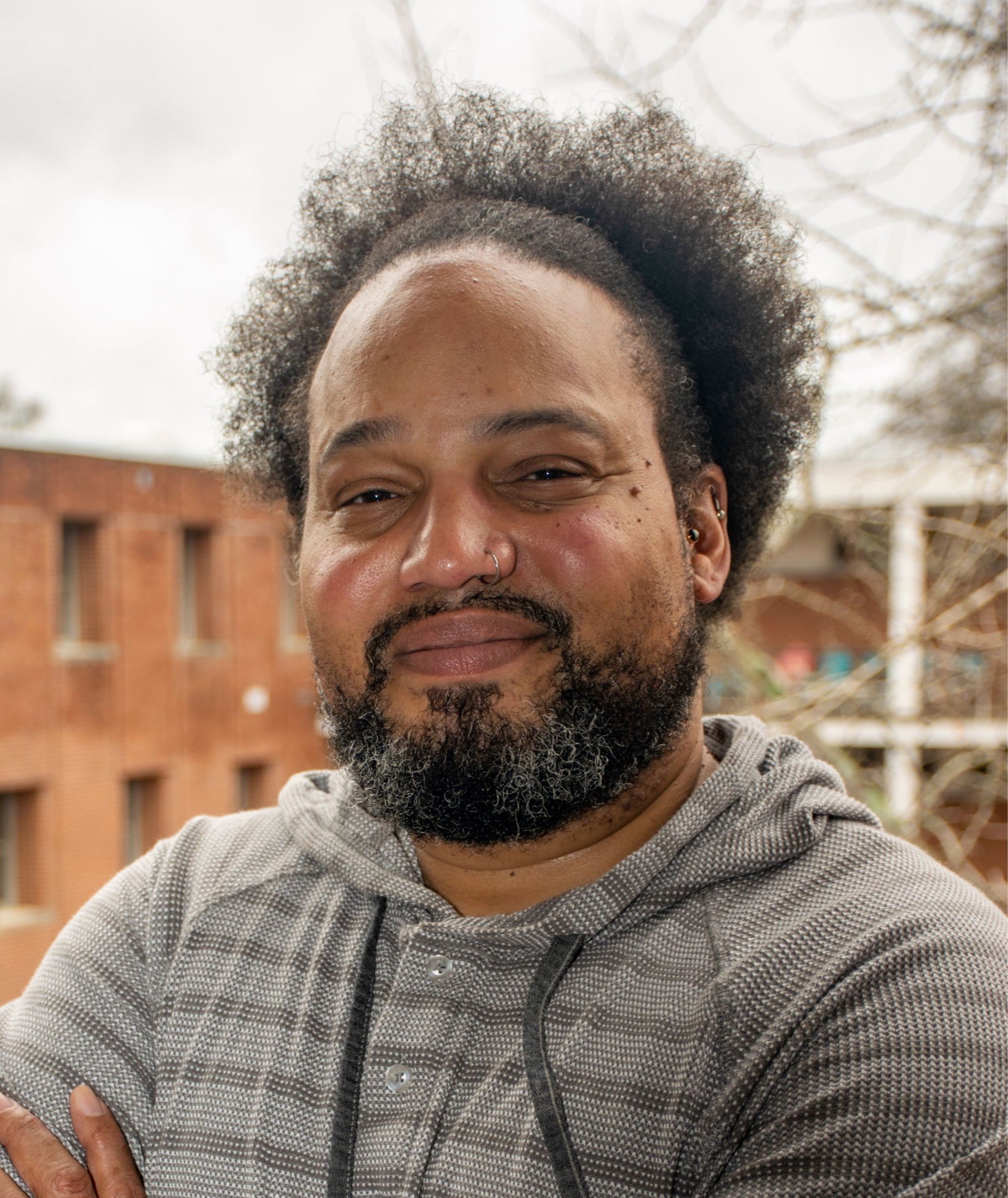
Interrogating the Role of Belief in Technology Design and Use
Speaker: Andre Brock
Date: 2020-10-26 15:07:00
Location: Virtual
While STEM fields possess the capacity to analyze the technical and organizational properties of digital interfaces, services, and their associated user practices, they are underequipped to evaluate or interrogate the cultural mediation of design, discourses, and meaning of digital technologies. This presentation describes a possible methodological intervention: critical technocultural discourse analysis (CTDA). CTDA employs critical cultural frameworks (e.g. critical race or feminist theory) with philosophy of technology and science and technology studies to interrogate digital artifacts, their practices, and the beliefs of the users employs them. CTDA integrates semiotic interface analysis with critical discourse analysis of the interface’s users. This talk outlines this technique, providing examples of how its methodological flexibility applies to examining varied ICT artifacts while maintaining a hermeneutic perspective on design and use. I designed CTDA especially for researchers interested in minority groups and digital practice as it foregrounds critical cultural theories while examining digital technology, grounded in user perspectives and real-world practices
Bio:
André Brock is an associate professor of media studies at Georgia Tech. His scholarship examines racial representations in videogames, black women and weblogs, whiteness, blackness, and digital technoculture, as well as innovative and groundbreaking research on Black Twitter. His forthcoming book titled *Distributed Blackness: African American Cybercultures* will be published with NYU Press in February 2020, offering an innovative approach to understanding Black everyday lives mediated by digital technologies.
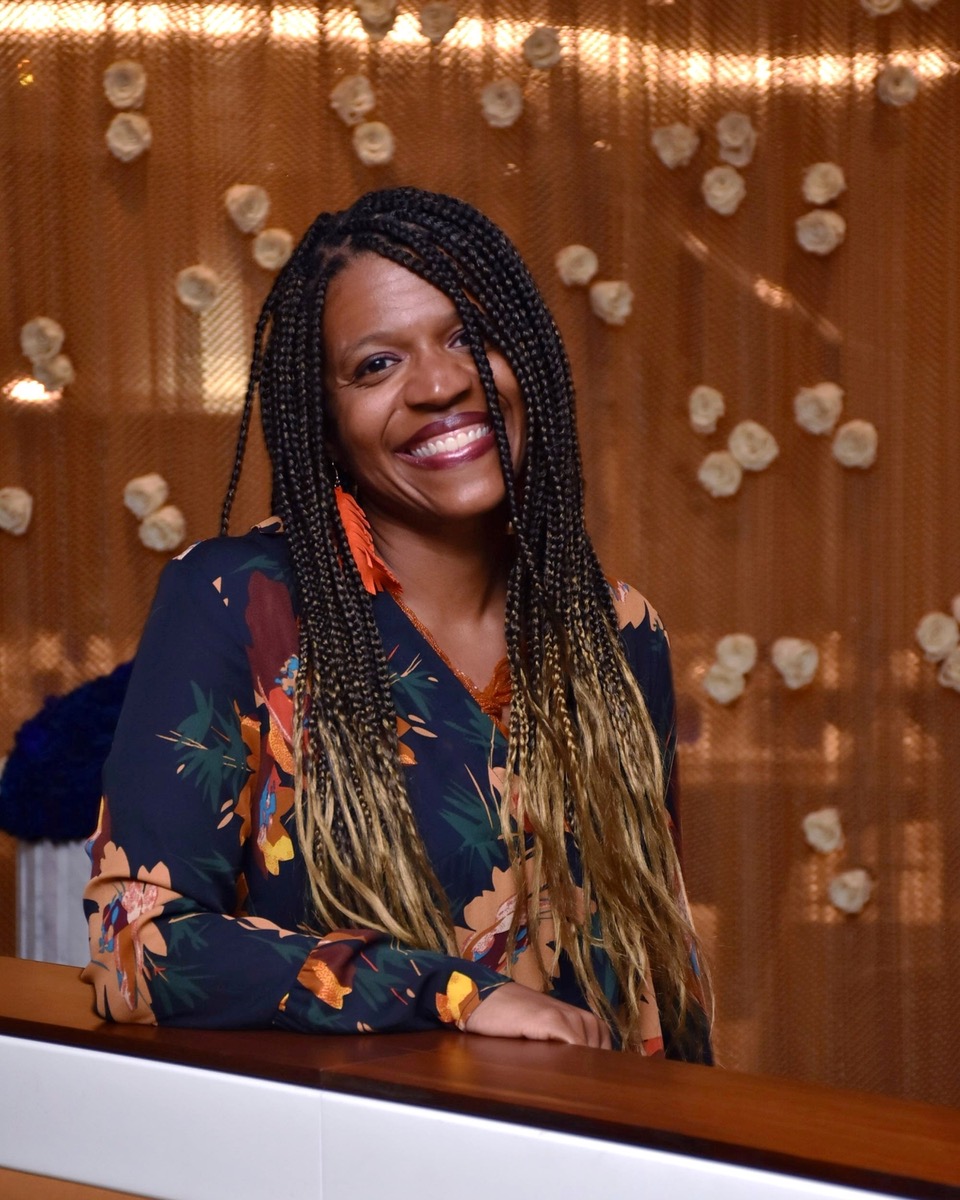
Designing Socio-technical Systems for Learning in the Third Place
Speaker: Tammy Clegg
Date: 2020-10-15 12:30:00
Location: Virtual
Oldenberg (1989) characterizes Third Places as the gathering places outside of home, work, and school where informal public life (e.g., friendship, laughter, light-heartedness, civic participation) develop dynamically. Indeed informal learning research has shown these spaces to be fruitful settings for learning. Yet, less is known about how socio-technical systems can be designed to integrate deeply into such hyper local environments and support community-based learning. In this talk, I will consider this question in the context of two research projects. First, in Science Everywhere, with colleagues, I have spent over six years designing, developing and situating a social media app, large community displays, and life-relevant science learning experiences for youth in two urban, low-SES neighborhood settings. From this project, I will highlight case studies of child and adult community members that illuminate the role of the Science Everywhere socio-technical system for influencing science disposition shifts in communities. Second, in the Data Everyday project, my research team is seeking to understand the opportunities for data literacy development within NCAA Division I sports. Drawing on an interview study with Division I athletes and athletics staff members across sports, I will highlight key tensions that reveal opportunities and challenges for designing socio-technical systems for data literacy development in elite athletics. Looking across these studies, I will then discuss guidelines for designing socio-technical systems that are deeply embedded in communities to engage a wide range of community members in sustained learning endeavors.
Bio:
Tamara “Tammy” Clegg is an associate professor in the College of Information Studies and the Department of Teaching and Learning, Policy and Leadership and at the University of Maryland. She co-directs the Youth eXperience (YX) Lab at the College of Information Studies, University of Maryland. Tamara’s work focuses on designing technology (e.g., social media, mobile apps, e-textiles, community displays) to support life-relevant learning where learners, particularly those from underrepresented groups in science, engage in science in the context of achieving personally relevant goals. She seeks to understand ways such learning environments and technologies support scientific disposition development. Tamara’s work is funded by the National Science Foundation, the Institute of Museum and Library Studies, and Google.
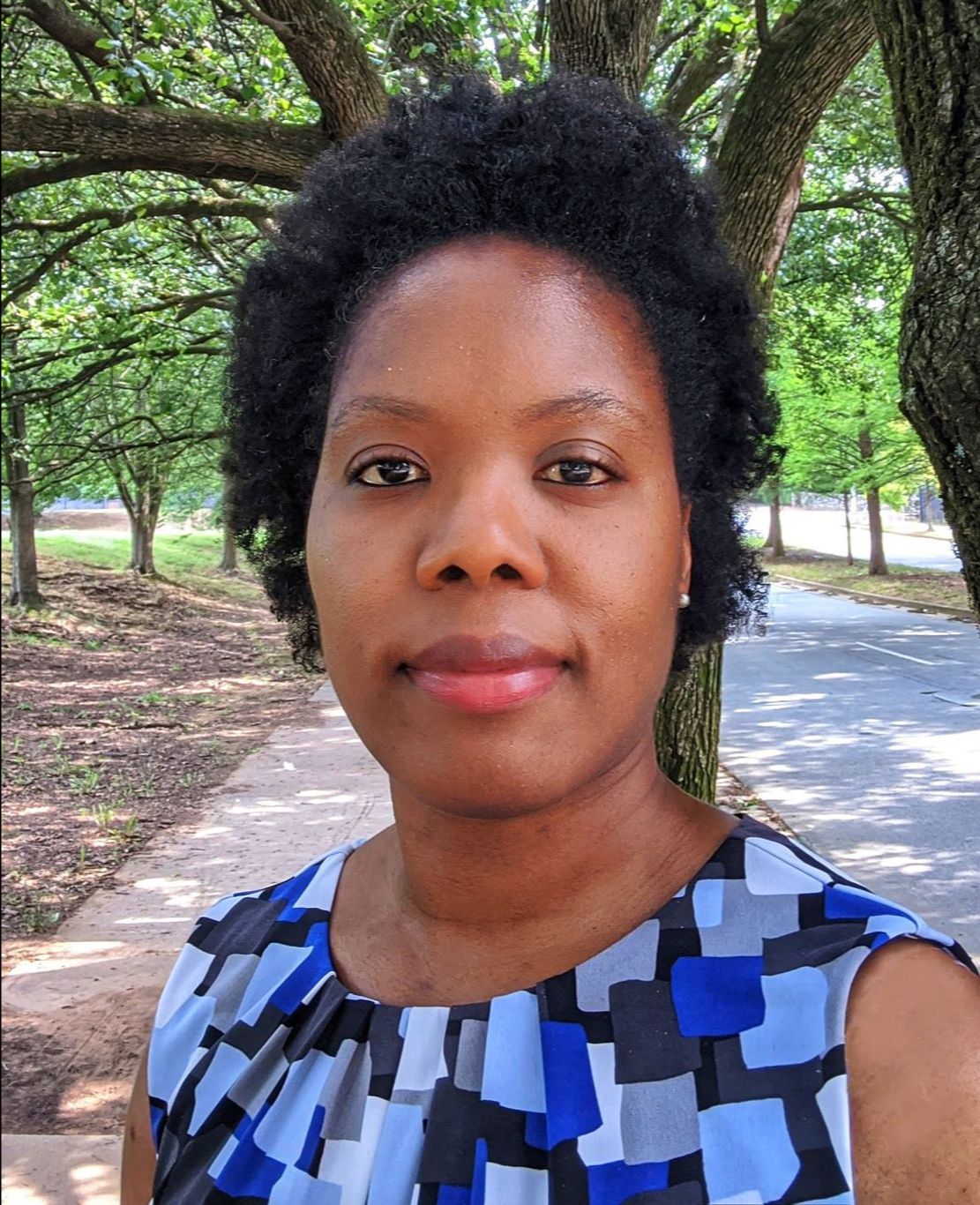
Situated Computations: Culture, Computers, and Craft in Design and Architecture
Speaker: Vernelle A. A. Noel
Date: 2020-10-01 12:30:00
Location: Virtual
Hand crafts, and the people who practice them, are typically seen as opposite to digital technologies. This talk challenges this split, and proposes eight principles for developing computational design tools that facilitate productive interactions across hand crafts and computational media. A ‘Situated Computations’ framework is an approach to design and computation that grounds technologies in the social world by acknowledging historical, cultural, and material contexts, and seeks to prevent us from choosing to remain ignorant of the political and economic structures in our research and in our creations. Outcomes of a Situated Computations approach to design will be presented.
Bio:
Vernelle A. A. Noel is a scholar, architect, artist, TED Speaker and Assistant Professor of Architecture and Computational Design at the University of Florida. Her research focuses on using design computation and ethnographic methods to investigate traditional and automated making, human-computer interaction, interdisciplinary creativity, and their intersections with society. She is particularly interested in building new expressions, tools, and methodologies to explore and describe social, cultural, and political aspects of making, computational design and emerging technologies. Currently her work focuses on the Trinidad Carnival and the craft of wire-bending embedded in this cultural design practice.
Video is not available for this event.
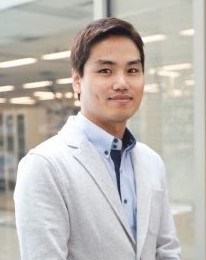
Smart and Connected Soft Bioelectronics for Advancing Human Healthcare and Human-Machine Interfaces
Speaker: W. Hong Yeo
Date: 2020-09-10 12:30:00
Location: Technology Square Research Building
Abstract
In this talk, Dr. Yeo will share the results of the fundamental study in soft materials, flexible mechanics, nanomanufacturing, and machine learning to develop soft electronics. In addition, he will talk about the details of how the basic knowledge can be applied to develop smart and connected wearable electronics. He will share some of the applications that used soft electronics for advancing human healthcare, persistent human-machine interfaces, and advanced therapeutics.
Bio:
Dr. Yeo joined the Woodruff School of Mechanical Engineering as an Assistant Professor in July 2017. Dr. Yeo’s research in the field of biomedical science and bioengineering focuses on the fundamental and applied aspects of biomolecular interactions, soft materials, and nano-microfabrication for the development of nano-biosensors and soft bioelectronics.
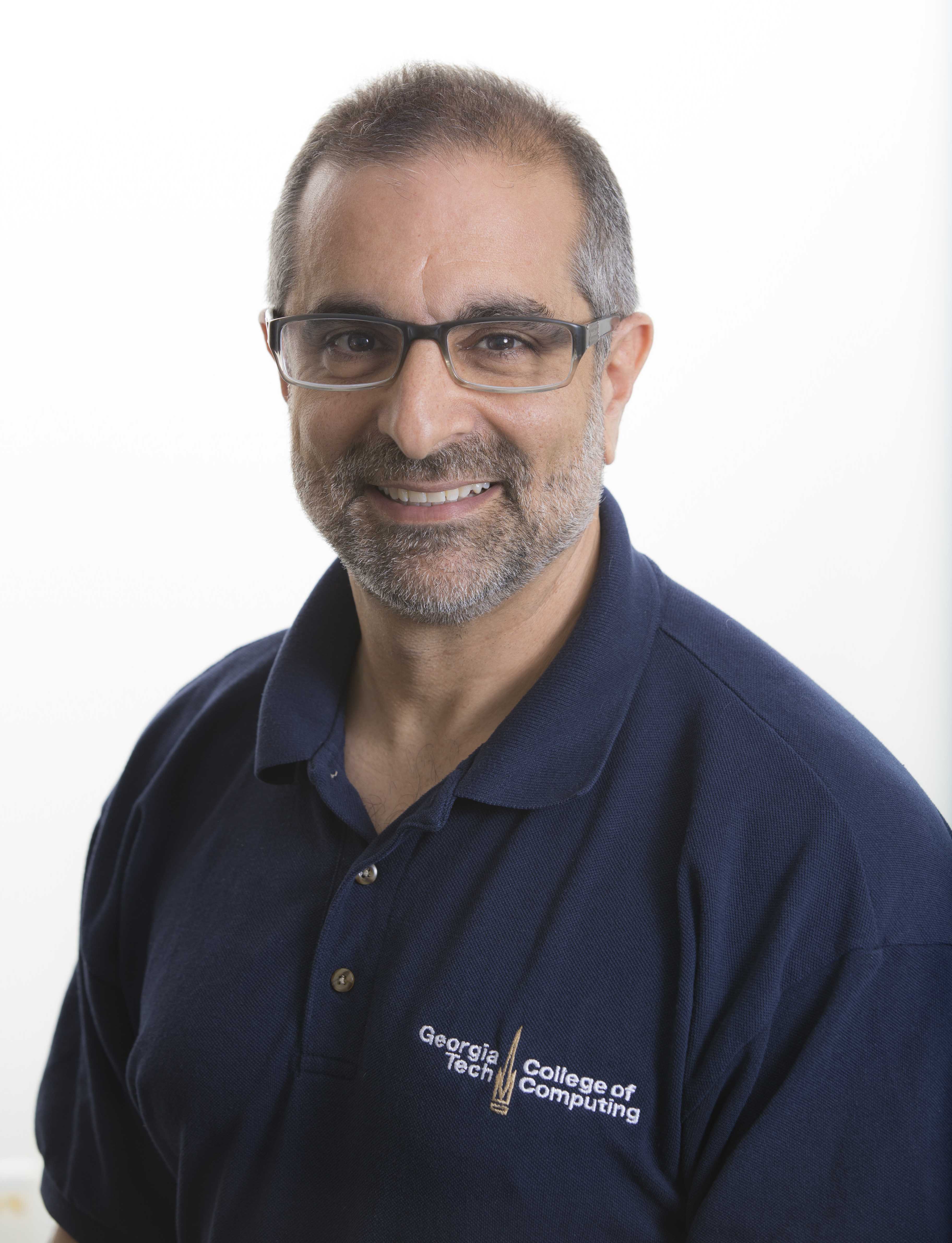
Using digital technologies to support pandemic response on campus: A case study in the opportunities and challenges of WiFi
Speaker: Gregory Abowd
Date: 2020-08-27 12:30:00
Location: Technology Square Research Building
ABSTRACT
Our campus operations were abruptly shut down on March 13, 2020 due to Covid-19, and the campus has not been the same ever since. This has impacted our educational and research mission at Georgia Tech. On the bright side, it has activated a number of collaborative efforts to help Georgia Tech prepare itself for re-opening safely. Whether or not we are successful this Fall 2020 semester, our efforts now will undoubtedly be useful for the future. Everyone has heard about the practice of contact tracing now, and the mad rush for digital solutions to fight against the spread of infectious disease. The CampusLife effort in the School of Interactive Computing (Profs. Abowd, Plötz and De Choudhury) found an opportunity to pivot our research in this direction We are exploring the opportunity to support manual practices of contact tracing with information from the campus wireless network infrastructure. I will give an overview of this effort and report on progress to date. This is very much a work in progress, but it demonstrates some important lessons for all of the GVU community. First, solutions to real problems involves lots of different skills sets and perspectives. Second, there is very interesting balance between public health and privacy, a conversation I hope to engage our community as a way of determining potential solutions.
Slides are available for download here <https://smartech.gatech.edu/bitstream/handle/1853/63104/presentation.pptx>
SPEAKER BIO
Gregory D. Abowd is a Regents’ Professor and J.Z. Liang Chair in the School of Interactive Computing at Georgia Tech, where he has been on the faculty since 1994. He also serves as an Associate Dean in the College of Computing. An applied computer scientist, Dr. Abowd's research interests concern how the advanced information technologies of mobile, wearable and ubiquitous computing impact our everyday lives when they are seamlessly integrated into our living spaces. Dr. Abowd's work has involved applications as diverse as education (Classroom 2000), home life (The Aware Home) and health (technology and autism, CampusLife). He and his current and former students are active inventors of new sensing and interaction technologies. Since 2015, Dr Abowd has been involved in efforts with other faculty in the School of Interactive Computing to harness passive and active sensing technologies to understand wellness of university students. Dr. Abowd is an ACM Fellow and a member of the ACM SIGCHI Academy.
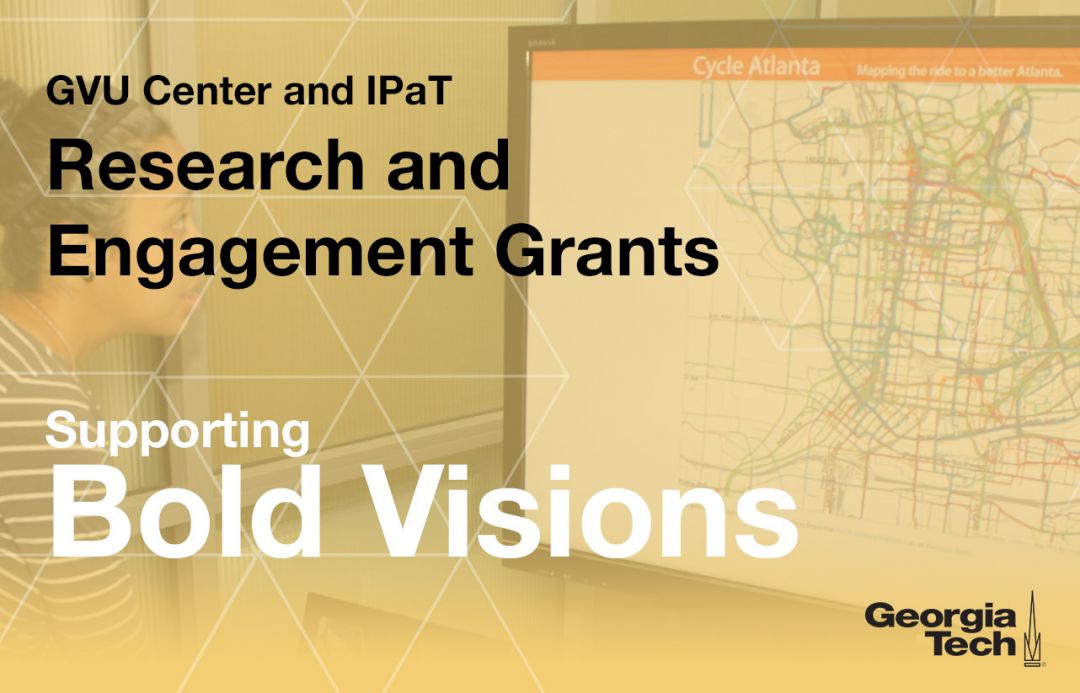
GVU/IPaT Research and Engagement Grants
Speaker: Research and Engagement Grant Recipients
Date: 2020-03-05 12:00:00
Location: TSRB (1st Floor Ballroom)
ABSTRACTS
Brooke Bosley, Takeria Blunt, & Jihan Sherman, From #hashtags to Movements: Performance, Collective Narrative and Erasure, a Black Feminist Perspective
The nature of Black women’s presence in constructing and leading digital social movements has historically been rooted in a performative and narrative practice that consistently battle misrepresentation and erasure. As these movements work to evolve from digital hashtags into physical protests that yield tangible outcomes, issues emerge when centering Black women’s perspectives. Through an interactive case study of Tarana Burke’s #MeToo movement, we aim to engage the community in a critical dialogue surrounding Black women’s engagement in hashtag feminism through performance, emphasizing the use of collective narrative creation that weaves stories using the intersections of femininity and Black womanhood.
Lelia Glass, Workshop on Language, Technology, and Society
The Workshop on Language, Technology, and Society (generously sponsored by the Institute for People and Technology, the GVU Center, and the Atlanta Global Studies Center) builds an intellectual community focused on the science of language. In a welcoming style accessible to an interdisciplinary audience, a series of invited speakers from around Georgia and the United States present their original research on topics such as text-based computational social science; vector representations of word meaning; technology-driven documentation of endangered languages; and language change over time. We have hosted three speakers already; one (David Birdsong) takes place the same afternoon as this presentation (March 5) at 5pm in Swann 115; and three more are planned for later in the Spring (everyone is welcome!). This short presentation documents our growing intellectual energy.
Haley Hart, Detecting and Measuring Food Insecurity at Georgia Tech
In 2016, Georgia Tech collected preliminary data through an online survey of 771 students. The report found that 10% of Georgia Tech’s students responded being in need of food assistance and that 16% prioritized working at their job over academics and extracurricular activities. Georgia Tech’s actions to fill this gap include opening Klemis Kitchen in 2015, an on-campus food pantry that provides leftover food from the dining halls and Panera Bread as well as canned donations from other sources. However, in Spring 2019, only 100 students have self-identified and enrolled in the program; a far cry from the 10% of students estimated in the 2016 survey. To ensure both the highest levels of health and academic performance of all GT students, we need to understand the effects of food insecurity/security on health and academic performance, identify effective methods of recognizing students who are food insecure, and develop interventions to that will increase food security among those students who are food insecure. The purpose of this preliminary study is to address the first two issues. Our specific aims are 1) to understand the impact of food security/insecurity on academic performance and 2) identify passive tools that can predict profiles of food insecure students that are specific to students within a semester period.
Laura Levy, Getting Good: Using esports to inspire students in developing STEM skills
Leveraging topics in popular media and culture can be a successful way to inspire students to pursue interests and skills in science, technology, math, and engineering (STEM). Robotics, space sciences, and gaming are some of the most popular vehicles to excite students about STEM and move them towards developing both the hard and soft skills, such as coding and team communication, requisite for success in these fields. Gaming and game design, in particular, have been a common way to motivate students to learn STEM skills, as game design requires a substantial amount of STEM knowledge to create, such as programming and math. Though esports (“electronic sports”) have existed for almost four decades, competitive online gaming is more popular and ubiquitous now than it has ever been. Esports at the high school level are incredibly popular with two primary leagues, the High School Esports League and PlayVS, representing more than 2,000 teams nation-wide and 170 teams in the state of Georgia for many of the most popular titles such as League of Legends, Overwatch, and Rainbow Six. Not only do esports present many of the same benefits for generating interest in STEM that gaming does, esports also serve to excite students in the surrounding ecosystem of what esports are. For example, students engaged in esports activities often learn web coding and hosting to support their own team websites, create promotional copy and media to generate hype on teammates, film and edit news clips for the school’s television station, and learn how to replace processors on lab machines for faster gaming performance. In this way, students are exposed to a whole suite of skills and career options in the gaming industry - other than strict programming - that includes production, video editing, team direction, as well as hardware, software, web, and network architecture.
While esports as a vehicle for generating STEM interest continues to appear highly successful, an existing challenge remains that educators and students are often less aware of the variety of variables that could contribute to their success in developing STEM skills. For example, both educators and students often have a lack of awareness of tools and programs that can be used, how to implement them, and exposure to careers that students can be motivated to work towards. This could negatively impact how and if students are advised on STEM career directions and skill development. For students that are under-represented and/or underserved already in their school systems and in STEM overall, this may be particularly harmful to their academic success and pursuits of STEM topics.
This talk will discuss a community engagement proposal that connects local educators, students, and industry professionals with Georgia Tech on the topic of esports as a STEM driving tool. By hosting workshops with schools, educators, students, and gaming industry partners, we seek to achieve three goals: 1) understand current challenges and barriers for educators and students in utilizing STEM motivators in their own schools, 2) increase stakeholder awareness of the current state of esports, including careers and requisite skills, and 3) give both educators and students hands-on contact with current technology and industry experts.
Anne Sullivan, Artificial Intelligence and Interactive Digital Entertainment 2019 Conference
Artificial Intelligence in Interactive Digital Entertainment (AIIDE) is a yearly conference that brings together ~100 representatives from both academia and industry with a strong focus on digital game environments. Participants of AIIDE present novel research and discuss interesting problems in the area of human-centered artificial intelligence and interactive media. The conference investigates not just how to make intelligent machines, but how to produce transformative technology that impacts engineers, designers, and authors on potentially very large scale projects with broad cultural visibility. For the first time in its 20 year history, AIIDE was held at Georgia Tech from October 8-12, 2019. In this talk, I will briefly recap the highlights AIIDE 2019 and bring attention to the aspects the GVU Engagement grant allowed us to support.
Matthew Swarts, Acoustic Sensor Deployment in the EcoCommons
This project examines the biodiversity of select animal groups around the EcoCommons and leverages existing quantitative (i.e. biodiversity and species richness measurements) and qualitative (species lists and dominant species) data to develop acoustic algorithms capable of monitoring wildlife acoustically. Our work will produce diagnostics that will be valuable in the design of lower power acoustic sensing devices and power measurements on the implementation of various acoustic algorithms. This work also sets the stage for efforts to examine city scale resilience by mapping biological diversity within cities and understanding drivers and corrective strategies. This aligns with efforts such as the 100 Resilient Cities, but also local groups such as Concrete Jungle, which maps local biological components in order to increase access to food and other natural resources to promote social justice and equity.
SPEAKER BIOS
Brooke Bosley, Takeria Blunt, and Jihan Sherman are all second year PhD students in the Digital Media Program, each exploring varying themes surrounding culture, materiality, computing, STS, and HCI.
Lelia Glass is an Assisant Professor of Linguistics in the School of Modern Languages at Georgia Institute of Technology. She is excited to build the intellectual momentum of language science at Georgia Tech in collaboration with people working on language from all angles.
Haley Hart is a master's candidate in the School of City and Regional Planning. Her background is in non-profit fundraising, specifically in poverty alleviation, but here at Georgia Tech has focused on food insecurity on college campuses. Her research on Georgia Tech's food insecurity issues on campus begun Spring 2019 with an internship through SLS with Jon Sanford in the Center for Inclusive Design and Innovation and has now expanded to the GVU/IPAT research that encompasses student eating habits their perceived academic success.
Laura Levy is a human factors psychologist at the Institute for People and Technology at Georgia Tech and Research Director of GEAR (Gaming & Esports Applied Research) specializing in serious game design, augmented and virtual reality (AR/VR), and human-computer interactions research. Levy works on a a variety of gaming projects including the implementation of esports in schools to drive STEM skill development, the design and scientific evaluation of student assessment games with ACT, Inc., and augmented reality student STEM game applications with the Verizon Foundation. Levy has also worked with Atlanta area students on the Games for Change Student Game Jams since 2018.
Dr. Anne Sullivan is an Assistant Professor of Digital Media in the School of Literature, Media, and Communication at Georgia Tech. Her work focuses on the intersection of artificial intelligence, craft, and narrative. Her research borrows from a wide range of fields such as HCI, games, and design research, with a particular eye towards representation and inclusion of underserved communities in STEM. Dr. Sullivan has worked on several published AAA games, craft games, and playful interactive crafts, with her work being shown internationally, including the SAAM Arcade exhibit at the Smithsonian American Art Museum. In her spare time she creates quilts for her cats to shed on.
Matthew Swarts is a Senior Research Scientist at the Georgia Tech Research Institute.
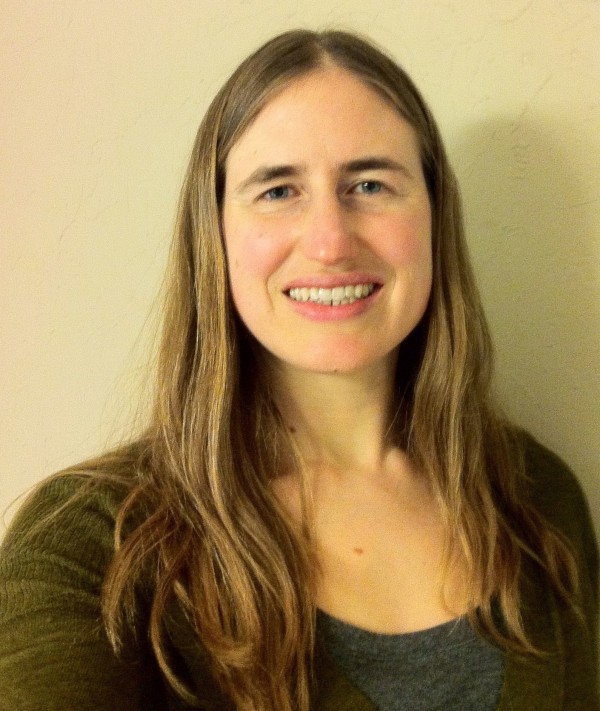
Human-Focused Reinforcement Learning
Speaker: Emma Brunskill
Date: 2020-02-27 12:00:00
Location:TSRB (1st Floor Ballroom)
ABSTRACT
There is increasing excitement about reinforcement learning--a subarea of machine learning for enabling an agent to learn to make good decisions. Yet numerous questions and challenges remain for reinforcement learning to help support progress in applications that involve interacting with people, like education, consumer marketing and healthcare. I will discuss our work on some of the technical challenges that arise in this pursuit, including sample efficiency, counterfactual reasoning, robustness, and applications to health and education.
SPEAKER BIO
Emma Brunskill is an assistant professor in the Computer Science Department at Stanford University where she leads the AI for Human Impact group. Her work focuses on reinforcement learning in high stakes scenarios--how can an agent learn from experience to make good decisions when experience is costly or risky, such as in educational software, healthcare decision making, or people-facing applications. She was previously a professor at Carnegie Mellon University. She is the recipient of a multiple early faculty career awards (National Science Foundation, Office of Naval Research, Microsoft Research) and her group has received several best research paper nominations (CHI, EDMx3) and awards (UAI, RLDM).
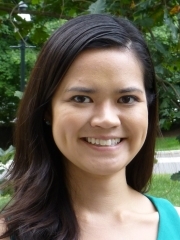
Twisted Topological Tangles or: The Knot Theory of Knitting
Speaker: Elisabetta Matsumoto
Date: 2020-02-20 12:00:00
Location:
TSRB: (1st Floor Ballroom)
ABSTRACT
Imagine a 1D curve, then use it to fill a 2D manifold that covers an arbitrary 3D object – this computationally intensive materials challenge has been realized in the ancient technology known as knitting. This process for making functional materials 2D materials from 1D portable cloth dates back to prehistory, with the oldest known examples dating from the 11th century BCE. Knitted textiles are ubiquitous as they are easy and cheap to create, lightweight, portable, flexible and stretchy. As with many functional materials, the key to knitting’s extraordinary properties lies in its microstructure. At the 1D level, knits are composed of an interlocking series of slip knots. At the most basic level there is only one manipulation that creates a knitted stitch – pulling a loop of yarn through another loop. However, there exist hundreds of books with thousands of patterns of stitches with seemingly unbounded complexity. The topology of knitted stitches has a profound impact on the geometry and elasticity of the resulting fabric. This puts a new spin on additive manufacturing – not only can stitch pattern control the local and global geometry of a textile, but the creation process encodes mechanical properties within the material itself. Unlike standard additive manufacturing techniques, the innate properties of the yarn and the stitch microstructure has a direct effect on the global geometric and mechanical outcome of knitted fabrics.
SPEAKER BIO
Elisabetta Matsumoto is an assistant professor in the School of Physics at Georgia Institute of Technology. Her physics research centers around the relationship between geometry and material properties in soft systems, including liquid crystals, 3D printing and textiles. She is also interested in using sewing, 3D printing and virtual reality in mathematical art and education. She is the recipient of an NSF CAREER award. She studied physics at the University of Pennsylvania, earning her BA and MS in 2007 and her PhD in 2011. She has been knitting and crocheting since she was about 12 and has been sewing for longer than she can remember.
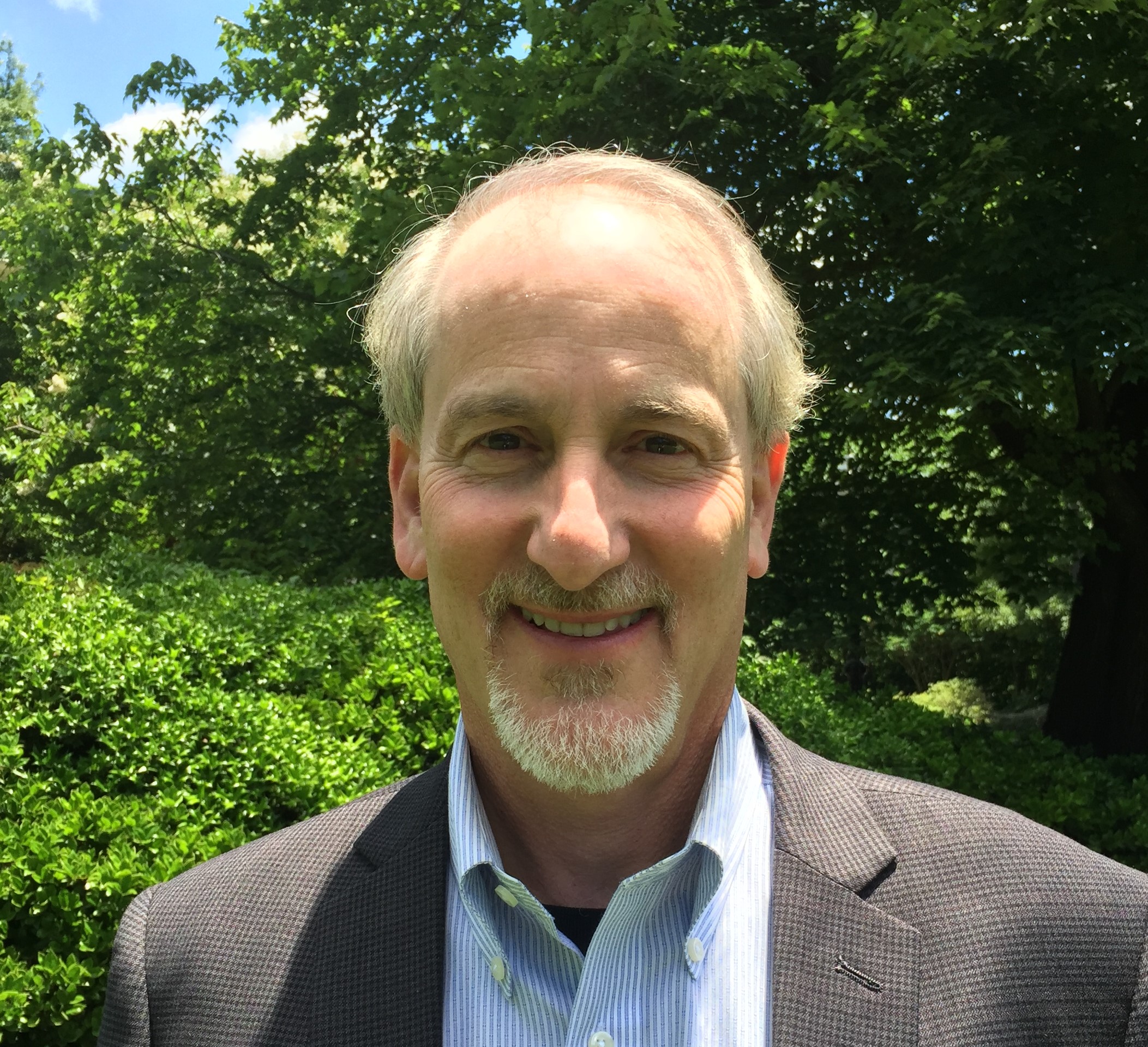
Sustainable Campus Development - Why it Matters
Speaker: Howard Wertheimer
Date: 2020-02-13 12:00:00
Location: TSRB (1st Floor Ballroom)
ABSTRACT
Georgia Tech has been at the forefront of sustainability since its inception in the 1880's. This is evidenced by the fact that the original brick buildings on campus were made from indigenous Georgia red clay, and Grant Field was the home to football, baseball and track. Fast forward to 2019 where we have just built the Kendeda Building for Innovative Sustainable Design, slated to be one of the most sustainable buildings in the southeast, on the path to meet the stringent requirements of the Living Building Challenge. Come learn about the evolution of Georgia Tech's 400-acre ecosystem and our commitment to sustainable campus development.
SPEAKER BIO
Howard Wertheimer is a Fellow in the American Institute of Architects and a LEED Accredited Professional. From 2006-2019, Howard served as the AVP for Capital Planning & Space Management and Institute Architect at the Georgia Institute of Technology where he had strategic oversight of the Campus Master Plan, Landscape Master Plan, Historic Preservation Plan, campus-wide sustainability initiatives, curation of public art, and most things visually exposed. He was responsible for the aesthetics and visual vocabulary of the campus, which currently includes over 16M square feet of space in 200 buildings on 400 acres in Atlanta, Georgia. While at Georgia Tech, Howard lead the development of the Kendeda Building for Sustainable Design and has delivered numerous papers across the country on Georgia Tech’s Living Building journey, anticipated to be one the most environmentally advanced education and research buildings on a university campus in the Southeast. Howard is currently the Executive Vice President and Chief Operating Officer at the Piedmont Park Conservancy, a non-profit overseeing the stewardship, operations, financial procedures, programs and overall performance to cultivate substantial and sustainable growth of Atlanta’s iconic Piedmont Park, which is the heart and soul of the city.
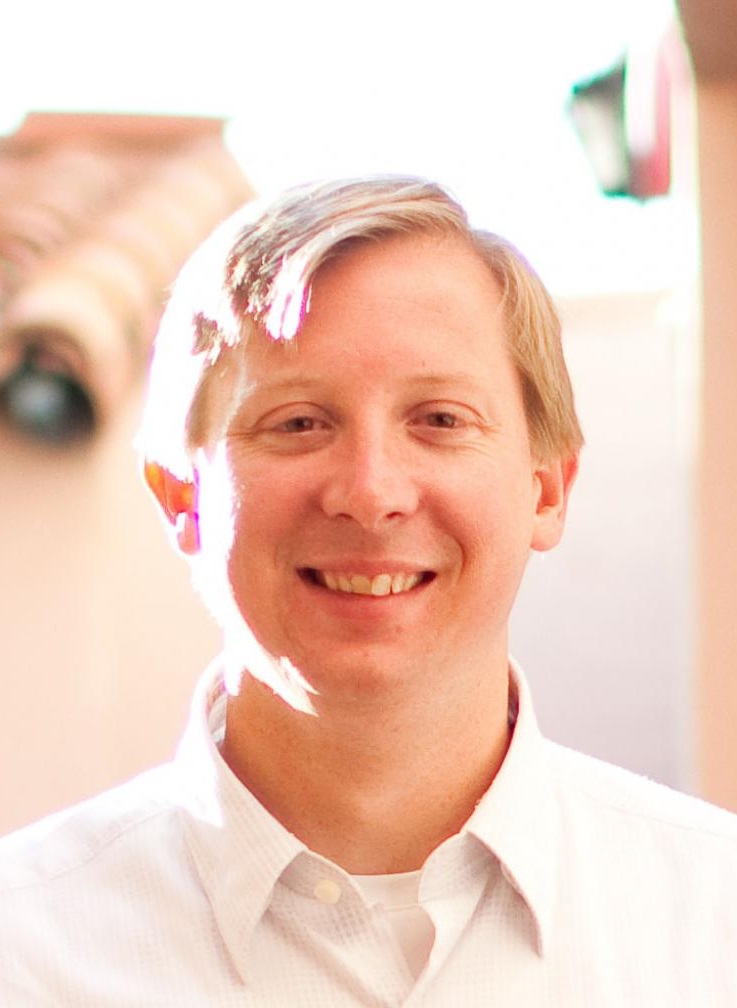
Rico and Beyond: A Mobile App Dataset for Interaction Mining and Machine Learning
Speaker: Jeff Nichols
Date: 2020-02-06 12:00:00
Location: TSRB (1st Floor Ballroom)
ABSTRACT
Rico is a publicly available dataset of user interfaces from 9.7k Android apps produced in a collaboration between Google and UIUC. The dataset contains screenshots, user interface hierarchies, and interaction traces from approximately 72k unique screens across these apps, and was collected using a hybrid approach that employed both crowd workers and automated techniques. This talk will briefly describe the dataset, how it was collected, and some projects that were built using it. The focus will be on projects done at Google, but also touch on what others have done with the dataset since it was released publicly in 2017.
SPEAKER BIO
Jeff Nichols is a Staff Research Scientist at Google where he has led teams of 20 researchers and engineers working in the areas of machine intelligence, ambient user interfaces, and accessibility. Currently he works on the Fuchsia open source operating system. Prior to that, he received his Ph.D. in 2006 from the Human Computer Interaction Institute at Carnegie Mellon University under the supervision of Professor Brad A. Myers. For seven and a half years after graduation he was employed as a Research Staff Member at IBM Research – Almaden and for several years managed the Social Media & Crowd Research group. He has published over 50 papers in major conferences and journals in the area of human-computer interaction, serves as an Associate Editor for Transactions on Computer-Human Interaction (TOCHI), and is the steering committee chair for the ACM Intelligent User Interfaces conference series.
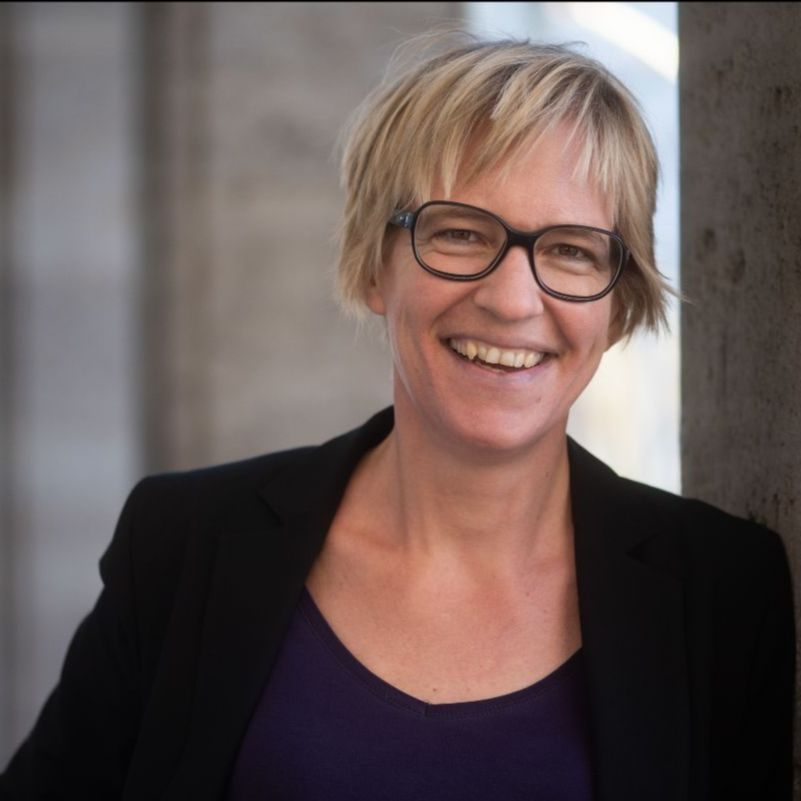
How Technologies such as Human Augmentation and Virtual Reality are Already Changing Lives
Speaker: Eva Wolfangel
Date: 2020-01-30 12:00:00
Location: TSRB (1st Floor Ballroom)
ABSTRACT
Science journalist Eva Wolfangel has specialized in investigating the effects of future technologies on society - by accompanying people who already make intensive use of these technologies today. She spent weeks under a VR headset researching social virtual reality, and she finally visited her new "virtual" friends in their real lives in Kuwait, Israel and various US states. These people already spend a large part of their lives in virtual reality - and that is no reason for cultural pessimism. In Japan, Wolfangel has accompanied researchers working on human augmentation, and she has tried out many of these technologies, met people here who are already using them and talked to many about their dream of an augmented future. In this talk, Eva Wolfangel discusses her research and how future technologies are already changing society today.
SPEAKER BIO
Eva Wolfangel is a Knight Science Journalism Fellow at MIT. In 2018, she was named European Science Writer of the Year by the Association of British Science Writers. She focuses on new technologies such as artificial intelligence and virtual reality, computer science, data journalism, interaction between digital and real worlds, and space travel. Eva’s specialty is to combine creative writing and technical topics in order to reach a broad audience. She writes for major magazines and newspapers in Germany and Switzerland, including Die Zeit, Geo, Der Spiegel, and NZZ, and also produces radio features. As a VR journalist, she reports from virtual worlds as part of the journalistic cooperative RiffReporter.
@evawolfangel
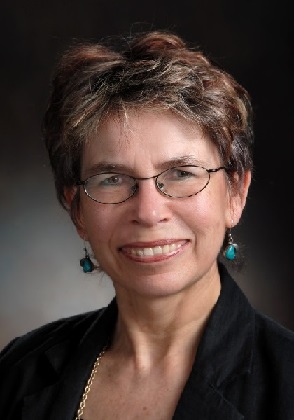
Serious Topics in Children's Digital Games
Speaker: Krystina Madej
Date: 2020-01-28 19:06:00
Location: TSRB (1st Floor Ballroom)
ABSTRACT
Games are an important form of play. While games are played by all age groups, for children, play and games are fundamental to learning and, for them, all play is serious. Serious games, which have become a prevalent game genre for adults, need not be confined to adult or adolescent audiences. Both from the perspective of serious topics and serious gameplay, older children as they head towards adolescence, and younger children as they negotiate their way through their first years of school, warrant the consideration of games developed to tackle topics that are becoming increasingly important to their health and wellbeing. In games, social value can only be created through a narrative a child can relate to. Whether we turn to David Winnicott on child development, Jerome Bruner on acts of meaning, or Kieran Egan on languaged learning, story dominates as the most valuable experience in the construction of a child's world and how they act within it. The added context of a personal approach, one that is culturally relevant, can create an influential avenue through which children can be provided with opportunities for gaining knowledge about problems that, while they may be national or global, are local to them – knowledge that could be critical to their wellbeing and survival in an increasingly hostile world. Games offer children a space that supports learning on their own. Moving from the typical to the atypical game, from simple problem solving that increases cognitive skills, to social problem solving that teaches empathy, is a shift that can happen through participation in narrative dialogue. Social value in a game can exist when the cognitive load is not in computing numbers but in the challenge of uncovering the more intriguing stories beyond the surface of coded messages. In this talk I present a case study that describes the design thinking process of a group of EU Erasmus students, each of whom brings their own cultural perspective and personal story to addressing how they would introduce children to contemporary issues, which either affect them currently, or will affect them as they grow up, through narrative in physically engaging games. A number of their final game designs are provided in outline.
SPEAKER BIO
Dr. Krystina Madej is Professor of the Practice at Georgia Tech, Atlanta. At Tech since 2011, she teaches about and researches how humans have adapted their narratives to changing media throughout the centuries, physical play and children's interaction with digital games that are based in narrative, and in Disney's approach to stories across media since the 1920s. Adjunct Professor with the School for Interactive Art and Technology (SIAT) at Simon Fraser University, Vancouver, for ten years, she taught as Visiting Professor for the Center for Digital Media's Master’s degree program. She is research faculty at University of Lower Silesia, Wroclaw, Poland where as Visiting Professor she teaches Disney History and Children’s Game Design for the Erasmus Program and Design Thinking and History of Social Media for the Big Data, Digital Media, and Trendwatching Master’s Program. Prior to returning to academia in 1999, she was principal of a communications and design firm for 15 years, where, as design strategist, she planned and created successful branding programs and exhibits for government, business, industry, and museums.
Foley Scholars
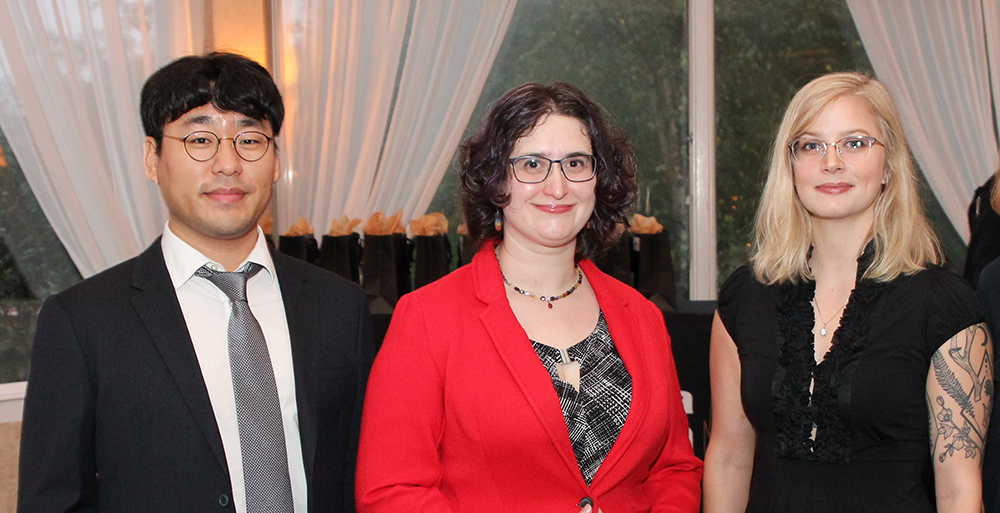
Foley Scholars
Speaker: Foley Scholars
Date: 2020-01-23 12:00:00
ABSTRACTS
Matthew Hong, Personalizing Health Management Through Human-Centered Data Augmentation
During complex chronic treatment, adolescent patients (ages 10-19) must communicate all illness needs to the care team so they can access relevant health resources when most needed. This communication is challenging because patients, family caregivers and clinicians have unmatched experiences, conceptions and linguistic representations of indicators of health. Most importantly, patients lack the means to capture and represent their felt illness experience. My colleagues and I addressed these challenges by advancing personalized computing technology and human-centric methods that inform collaborative approaches for managing personal health data. In this talk, I will describe how technology can be designed to effectively scaffold patients’ gradual participation in managing their illness. I draw from Health Informatics, Participatory Design, and Human-Computer Interaction to show how we can augment clinically-generated, and patient-generated data in ways that cater to personal health needs. I will discuss how human-centered data-augmentation can help designers create intelligent systems to improve chronic care for pediatric patients.
Lara Martin, Understanding the Technological and Experiential Requirements of Improvisational Storytelling Agents
Although we are currently riding a technological wave of personal assistants, many of these agents still struggle to communicate appropriately. Humans are natural storytellers, so it would be fitting if artificial intelligence could tell stories as well. Automated story generation is an area of AI research that aims to create agents that tell “good” stories. Previous story generation systems use planning to create new stories, but these systems require a vast amount of knowledge engineering. The stories created by these systems are coherent, but only a finite set of stories can be generated. In contrast, very large language models have recently made the headlines in the natural language processing community. Though impressive on the surface, these models begin to lose coherence over time. My research looks at various techniques of automated story generation, focusing on the perceived creativity of the generated stories. Here, I define a creative product as one that is both novel and useful. In my dissertation, I theorize that a jointly probabilistic and causal model will provide more creative stories for readers of stories generated from an improvisational storytelling system than solely probabilistic or causal models.
Emily Wall, Mitigating Implicit Human Bias in Visual Analytics
Implicit bias is a term used to describe the way that our culture, experiences, and stereotypes can unconsciously impact our attitudes and decision making. Such biases, like racial or gender bias, can impact decision making in critical ways, propagating long-standing institutional and systemic biases. However, as decision making is increasingly taking place with the aid of data-driven visual representations (including interactive visualization tools like Tableau, among others), we are afforded a new opportunity with respect to the detection and mitigation of implicit biases. In this talk, I describe (1) how user interactions with data can be used to approximate implicit biases and (2) how visualization systems can be designed to make implicit biases more explicit by increasing awareness. By creating systems that promote real-time awareness of bias, people can reflect on their behavior and decision making and ultimately engage in a less-biased decision making process.
SPEAKER BIOS
Matthew Hong is a PhD candidate in Human-Centered Computing in Interactive Computing. His research lies at the intersection of Human-Computer Interaction and Health Informatics, and focuses on supporting pediatric patients’ management of complex chronic conditions through the design and deployment of human-centered health technologies. He has published in leading conference proceedings and journals, including the ACM Conference on Human Factors in Computing Systems (ACM SIGCHI) and the Journal of American Medical Informatics Association (JAMIA).
Lara Martin is a Human-Centered Computing PhD Candidate in the College of Computing at Georgia Tech. Her work resides in the field of Human-Centered Artificial Intelligence with a focus on natural language applications. Lara is currently working on automated story generation, but her previous work includes speech processing and analyzing online communities. Lara earned a Masters of Language Technologies from Carnegie Mellon University and a BS in Computer Science & Linguistics from Rutgers University—New Brunswick. In addition to winning the Foley Scholar Award, she recently received the Best Doctoral Consortium Presentation award at the 2019 ACM Richard Tapia Celebration of Diversity in Computing Conference.
Emily Wall is a 2019 Foley Scholar and Computer Science PhD candidate in the School of Interactive Computing, where she is advised by Dr. Alex Endert. Her research interests lie at the intersection of cognitive science and data visualization. Particularly, her dissertation has focused on increasing awareness of unconscious and implicit human biases via the design and evaluation of (1) computational approaches to quantify bias from user interaction and (2) interfaces to support visual data analysis. Her research has been supported by the Siemens FutureMaker Fellowship and the National Physical Science Consortium Fellowship, among others.




